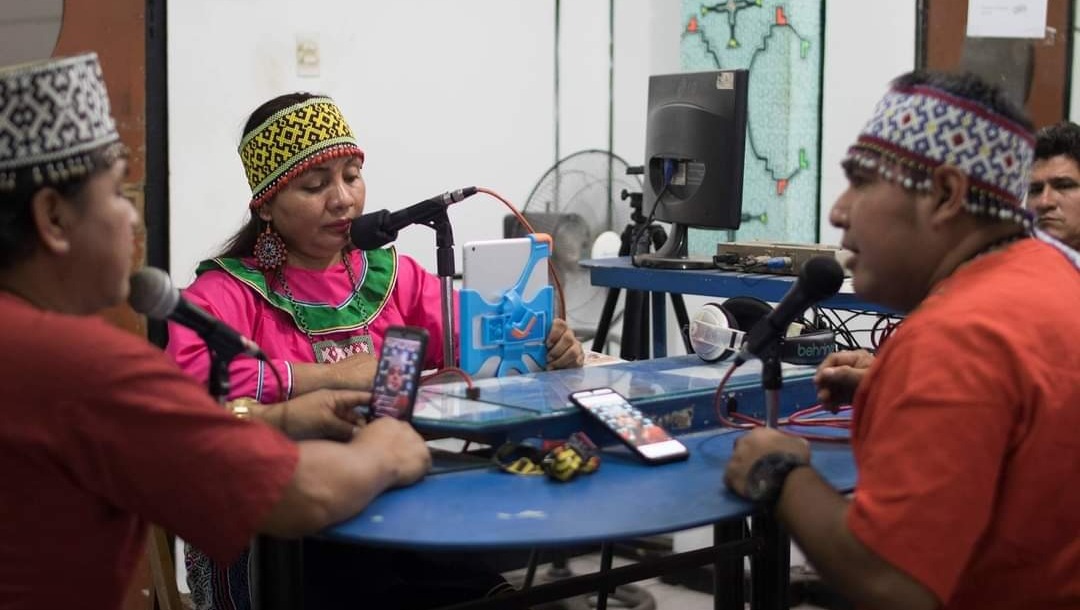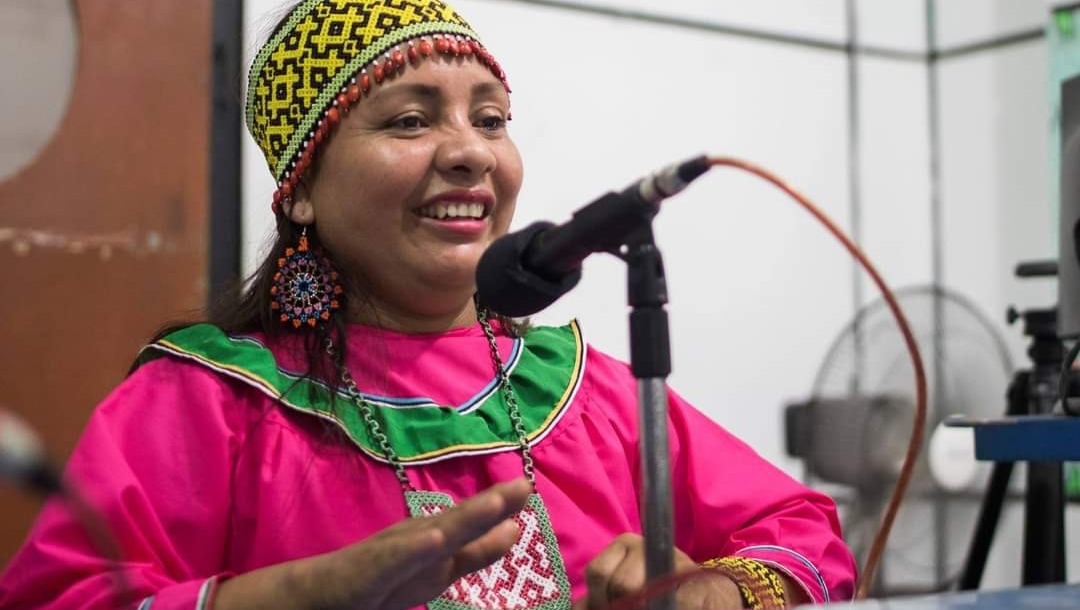Meet Axenon Ikanwe!
Rooted in the Amazonian city of Pucallpa, Peru, Axenon Ikanwe (pronounced ash-eh-non ee-kan-way) is an Indigenous radio program made by and for the Shipibo-Konibo peoples of the Amazon. The Shipibo-Konibo people represent a third of the Indigenous population in the Amazonian regions of Peru and is the fifth largest of all Indigenous groups in Peru. The program Axenon Ikanwe currently reaches all of the Shipibo-Konibo communities of the Ucayali region which is more than 130 communities and over 30,000 people.
Donate here to help fund Axenon Ikanwe!
GlobalGiving: Revitalize Shipibo Language through Radio Program
GoFundMe: Help Us Fund the Axenon Ikanwe Radio Team!

The radio program, only in operation for three years, fills a unique gap in the robust ecosystem of other radio programs hosted by Indigenous peoples in the Peruvian Amazon. Most Indigenous radio programs communicate through a mix of Spanish and Indigenous languages, while Axenon Ikanwe is the first Shipibo-Konibo radio station to conduct its program entirely in Shipibo-Konibo. The program is popular and well-received amongst all generations of the Shipibo-Konibo community. The charismatic and visionary hosts, Ranin Koshi, Inin Yui, and Metsa Jisbe, discuss a range of topics, including local, national and world news, public health updates, traditional storytelling, the relevance of the Shipibo-Konibo cosmovision, and conversations about the Shipibo-Konibo language, which is classified as “definitely endangered” by UNESCO.
At present, most Shipibo-Konibo speakers are adults and elders, who have become increasingly vulnerable in the face of COVID-19 given its disproportionate impact on Indigenous communities. Many Shipibo-Konibo youth are learning a Shipibo-Spanish hybrid, which has also supported a rapid decline in Shipibo speakership. This is largely due to Spanish being equated with better job opportunities and increased economic participation. Axenon Ikanwe recognizes the economic and social forces at play, while also acknowledging the key role language revitalization has in strengthening Indigenous communities, like the Shipibo-Konibo.

Fittingly, Axenon Ikanwe means “let’s learn together” in Shipibo-Konibo and seeks to do just that. Axenon Ikanwe illustrates the importance of Indigenous language in strengthening Indigenous sovereignty and resilience in the persistence of historic marginalization. The hosts explore the connection between Shipibo-Konibo language and cosmovision, which includes a rich tradition of reciprocity and balance with the natural world. As the Shipibo-Konibo experience a changing relationship to their ancestral lands, the program is a useful tool to advocate for land rights and promote Indigenous knowledge around land stewardship.
The program gets to the root of what it takes to build resilience and is a testament to the power of Indigenous language in strengthening Indigenous communities. In order to protect our climate and keep forests standing, there is a case to be made for supporting Indigenous language revitalization efforts as a way to support sovereignty and a better future for communities that steward our tropical forests.
